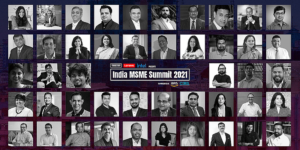Sometimes, the best of ideas come from collaborations between people from different backgrounds, and think tanks are no different. Think tanks, at their best, can capture the imagination of different minds, stimulate debates to gauge problems and offer creative and practical solutions to address them. For a think tank to succeed, you need good ideas, a group of experts on board, the institutional capacity to nurture those ideas and the ability to hit the market at the right time.
Conglomerates worldwide are leveraging the power of artificial intelligence and digital innovation to build think tanks comprising experts, where each of them specialise in one or more disciplines – legal, econometrics, marketing and business development, and so on. The Group Data and Analytics Cell at Aditya Birla Group (ABG) is one such think tank that provides strategic direction and vision to the company and drives AI-led innovation at scale.
The origins of the vanguard that supports ABG
The Aditya Birla Group is a 150-year-old organisation and a $45 billion conglomerate whose operations span across multiple sectors such as telecom, retail, cement and manufacturing. Until 2007, group businesses were experimenting with data and analytics and although there were small initiatives in place, they wanted these initiatives to take off on a larger scale. The group launched the Group Data and Analytics (DNA) Cell in October 2017 to create value from the gold mine of information they already had. The team plays a vital role in delivering business outcomes by leveraging the power of AI and digital solutions across the customer verticals and the supply value chain.
The team is headed by industry veteran Deep Thomas. As the Chief Data & Analytics Officer for Aditya Birla Group, Deep is steering organisation-wide initiatives and transformation programmes that leverage AI data and cutting-edge analytics solutions to enable business opportunities, growth and efficiencies across the enterprise.
“We aim to bring the best of AI and Digital technology and capabilities to drive impact and innovation by solving the top priority issues ABG businesses are grappling with,” says Deep.
Leveraging the 4I framework in data and analytics
The Group Data and Analytics Cell is responsible for driving AI-led innovation. In order to do this, it operates along a well-thought-out 4I framework where the four ‘Is’ stand for: impact, from generating quantifiable business outcomes through unique first ML-based solutions; innovation from building digital assets and bringing in an outside-in perspective through academic and startup partnerships; intellect from building a digital-savvy talent pool through imparting top-class training and facilitating the exchange of knowledge; and finally institutionalisation, from building robust programme management and governance practices.
The AI and Digital Assets team is led by Naveen Xavier, who is responsible for the overall product portfolio, right from conceptualisation to scaling up the products within and outside of the Aditya Birla Group.
Talking about his team’s role, Naveen Xavier says, “Given the fast-paced technological advancement and the ever-intensifying competitive landscape, organisations are now beginning to realise the potential of big data and analytics in driving improved business outcomes. Our GDNA cell is made up of highly-skilled sector-agnostic teams who are helping business units along their analytics journey.”
To build quantifiable impact, the team has also identified significant opportunities within the group where analytics and digital innovation can play a huge role in generating cost savings, improving efficiency and revenue upliftment.
Ashutosh Joshi, Lead – Product Strategy, adds, “The function will build strong analytics and domain expertise from the best-in-class talent from leading global and Indian businesses and institutions, coupled with cutting-edge tools and technologies built on a highly scalable and robust big data infrastructure.”
AI-led innovation led by the Group Data and Analytics Cell
Creating long-term value by building digital assets takes a lot of effort and time. The product life cycle involves five stages. The first is the concept stage where ideas are aggregated from internal and external sources and concepts are evaluated. Secondly, analysis is done to monitor the feasibility of the idea. The third is the prototyping stage where the product is tested with ABG, feedback is collected, and the complete product is built. In the fourth stage, the product is tested on specific ABG businesses. The final stage involves the scaling up and deployment of the product through partnerships.
For this, the Group Data and Analytics Cell has 14 proprietary AI platforms that harness the power of video, text, speech and image data and cater to a different set of requirements from safety, to customer experience to logistics. These include VEDA (patent pending), DEEVA, MILE, ABG Care, PACE and Pulse, among others. These platforms use advanced AI techniques such as video analytics and natural language processing (NLP) to harness the power of the large amount of unstructured data arising from several touchpoints to drive a host of benefits, right from enabling businesses to deliver an unparalleled customer experience, to monitoring adherence to quality and safety measures, thereby avoiding product rejections.
At its current stage of development, the impact seems minimal, but the overall cost savings are projected to be sizable and will be delivered in the next few years.
Tackling challenges and working towards the future
ABG presents a massive opportunity size and is looking to optimise costs to the tune of $18 billion. Their current focus areas are logistics, procurement and energy, and additionally, there are other areas such as customer experience, sales and marketing and quality where they are leveraging AI and digital to create a sizable impact.
With the pandemic posing unprecedented challenges, the Group Data and Analytics Cell had to come up with out-of-the-box solutions. There were challenges across the spectrum ranging from safety and well-being to adhering to government norms.
To ensure the strict monitoring of social distancing norms within manufacturing plants, the Group Data and Analytics Cell built VEDA, a patent-pending AL/ML framework. The platform analyses CCTV feeds and varied data to detect hazards, body temperature, unauthorised intrusions, quality use cases, correct use of safety gear, usage of face masks, proximity, etc.
Arun Raghuraman, Lead – Product Management, says, “From a manufacturing standpoint, safety is a very big concern and we want to ensure that workers and the contract workers associated with the group do not face any safety-related issues. VEDA delivers business outcomes and cost benefits by monitoring several parameters, even in remote locations.”
The team also built a mobile app called ABG Care that enables employees to return to work in a safe and coordinated manner. With 10,000 employees onboarded, the intelligent platform calculates risk scores based on a set of questions, based on which managers are notified. Using responsible machine learning algorithms, corrective actions are also suggested, parameters are changed and broadcasted in ABG offices at multiple locations.
Manigandan Venkataraman, Lead – Product Engineering, who is closely associated with building the app says, “Our product engineering team is crucial in the creation of such platforms. It’s not just about ensuring a fast implementation and direct impact on both top and bottom line, we also have to ensure scalability, resilience and performance of our platforms.”
Going forward, the team will focus on building a waste management platform to generate more value out of waste.
Aishwarya Raghavan, Lead – Digital Platforms, who was involved in the conceptualisation of the waste management platform says, “Essentially, a product does not get built in a very short period. A certain amount of time is spent ideating about the product, doing an ROI analysis, etc. We are constantly looking to unlock value and identify optimisation opportunities in line with business priorities. We are building digital platforms in the areas of logistics, procurement and energy currently and we will also look at building other platforms once we’ve made significant progress in them.”










![Read more about the article [Jobs Roundup] These openings may help you land a role at B2B manufacturing unicorn Zetwerk](https://blog.digitalsevaa.com/wp-content/uploads/2021/08/Imagegxfc-1629712185047-300x150.jpg)